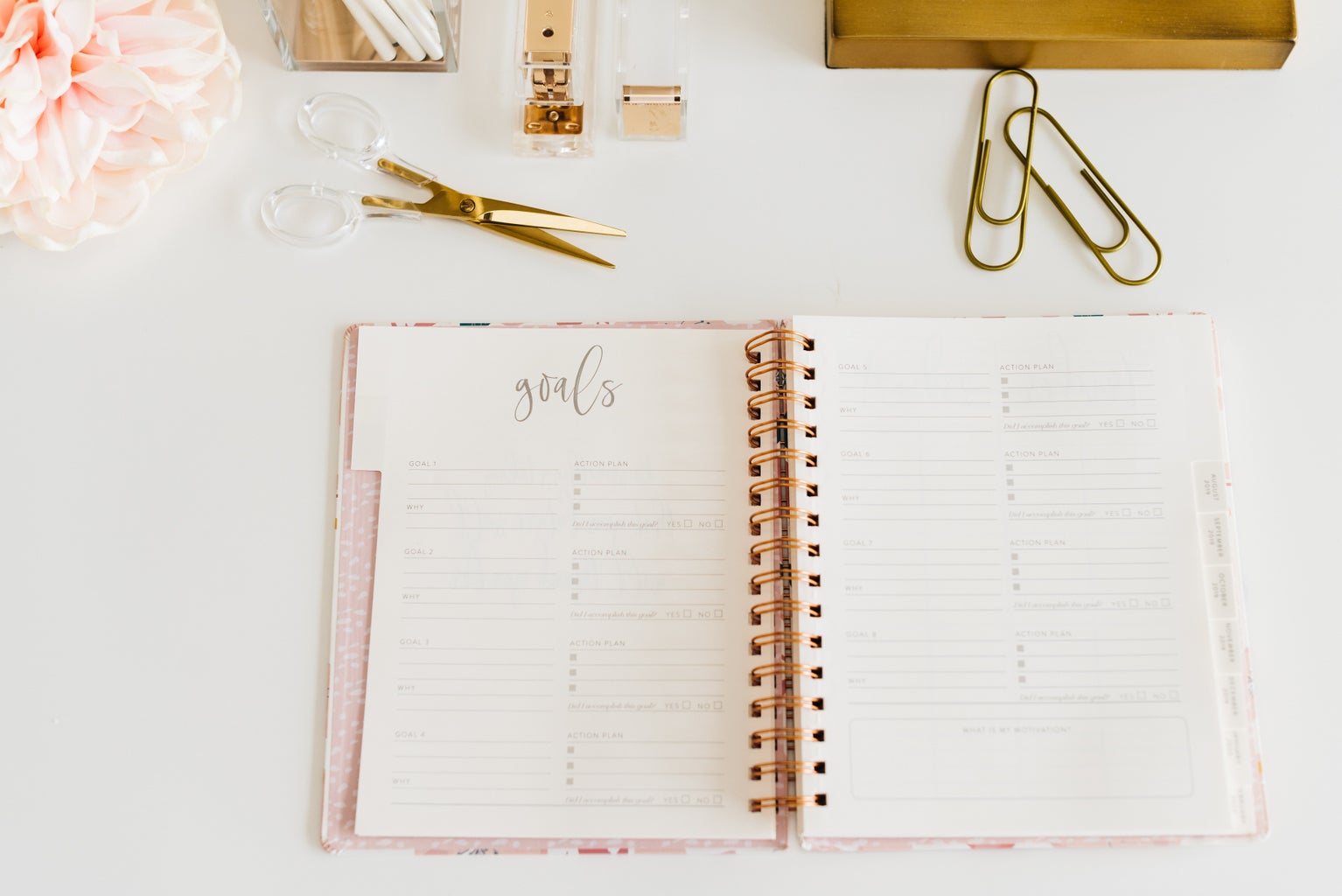Welcome back ladies! We just finished our first week of classes for this fall semester! It is time to get back into the swing of all things college life. One of the biggest parts of college life is academics. We each have our own areas of study, schedules, interests and career goals. All of these things have the potential to cause a significant amount of stress, anxiety and frustration especially as professors begin to assign projects, test dates, etc. Through this article, I hope to explain a couple of my study tips that will not only help you start this semester strong, but also finish the semester confident and satisfied with your classes. Academics have always been very important to me alongside accomplishing my personal goals towards my major, interests and future career. Here are a few of my study tips that will help you excel in any area of study this semester:
- NOTE-TAKING
-
Note-taking is one of the most essential factors to your success in a class. It not only reflects how well you understand the material but will also reflect how you will perform on exams. Some people prefer taking notes on a computer or iPad, while others prefer pen and paper. It is also important to note that certain classes may lean towards one style over the other. Either one accomplishes the goal of recording important information in class. However, I found that a combination of the two is extremely beneficial for studying. For example, I take my notes in class on my Mac laptop. Then, when it’s time to study for a test, I will handwrite the key points from my typed notes. There is something very advantageous about repetition by copying information by hand. This method helps you review the material intricately. Another method I use is printing my study guide and then highlighting the key points that I will be tested on. This helps me narrow down the specific points I will be quizzed on amongst pages upon pages of notes. Handheld copies of information help engage your mind and body with the material as well as contribute to memorization skills. Using both methods of typed and handwritten notes has proved to help me review and retain information from my classes. It is important to note that this method can also be reversed (one can handwrite the notes in class and then type them for studying).
- STUDY ALONE, REVIEW TOGETHER
-
Study groups are very popular in college. They not only allow you to get your questions answered by peers and prepare for an exam, but they also provide you with the opportunity to get to know the people in your classes. I have been part of several study groups and have seen the pros and cons of them. While I enjoy studying with others, especially with friends, I have witnessed times where the group may get distracted by conversation or the meeting turns into one person simply sharing his or her entire study guide with the group. I found that for me, it was most beneficial to create my own personal study guide and then review the material in a group and get quizzed by my peers. Studying the material can include rereading notes or chapters from the textbook and creating a study guide or flashcards. These things oftentimes can get done quicker alone. If everyone in a group studies on their own, then they can each bring their own study guides and flashcards to the collective meeting. Everyone can focus on answering those remaining questions, addressing any areas of confusion, and quizzing each other via practice tests or even practice games. By approaching group meetings this way, you save a lot of time that would have been spent going over every key point that will be on the exam for the first time. This ensures that no one shows up without looking at the material that will be on the test and also gives everyone a little more familiarity and confidence in the material.
- ACCESS RESOURCES
-
Virginia Tech provides tons of amazing resources for students to use. Some of these resources include tutoring services, the Writing Center, the Comm Lab and professor’s/TA’s office hours. Virginia Tech’s tutoring services are located in The Student Success Center and provide free tutoring specific to any course offered at the university. This is such a great resource to take advantage of if you are struggling in a class or even if you are doing well in the class and just want to understand the material a little better. The Writing Center is located on the second floor of Newman Library. This resource provides feedback on any writing assignments or assistance in brainstorming or developing ideas for an upcoming assignment. The Writing Center offers synchronous and asynchronous appointments as well as drop-in appointments. You can also apply to work in The Writing Center which is great to add to your resume! The Comm Lab is located on the second floor of Newman Library like the Writing Center. This resource provides both undergraduate and graduate students at Tech the opportunities to develop and improve public speaking and teamwork skills. The Comm Lab is a great place to check out if you have any presentations, speeches, or group projects in your classes. The last resource is probably the most beneficial to me personally. This resource is the professor’s and TA’s office hours. I must also include and emphasize that certain professors or TAs will hold review sessions either in-person or virtually for upcoming exams. Take advantage of these sessions! It was extremely beneficial to me for the majority of my STEM-based courses to attend these sessions. They reveal what information to focus on and outline what to expect for the exam. All professors and TAs at VT are there to help you and want to see you succeed in the class. There is no shame or awkwardness in showing up for office hours or scheduling a meeting time. The people who excel are the ones who are not afraid to ask questions and take advantage of the resources provided.
- TIME MANAGEMENT
-
Time management is at the core of accomplishing goals. It is so important to practice self-care and take that time to make sure you tend to your mental, physical, and emotional health. College should not be all work and no play. It should be a balance. You should join clubs, go out with friends, get proper rest, and indulge in your hobbies. Not one aspect, work or play, should consume your life entirely. Part of time management in the area of academics is avoiding procrastination at all costs. Get an academic planner, set up that Google Calendar, or buy a whiteboard calendar for your room. Look at your class schedules now, at the beginning of the semester, and plan accordingly. Start studying at least three to four days before a test (keep in mind some people need more time to study than others so know yourself and your needs). This allows you to break up the studying process to make it less dreadful or overwhelming. Maybe review textbook chapters and notes one day and then the next start making the study guide or flashcards. Take breaks in between your study sessions. Set a timer for an hour, study for the entirety of that hour, then take a break by watching a show on Netflix, grabbing a meal with friends, or even taking a well-earned nap, and repeat. It is also incredibly helpful to review your notes consistently (maybe once a week or every couple of days) to start familiarizing yourself with the information before the test approaches. This makes the studying process so much easier!
- QUIT COMPARING
-
Comparison is a very slippery slope, especially with grades and GPA. It’s often subtle and unintentional. It starts with little conversations about what everybody got on the last test or project. It starts when people compare how long they studied for something or how much they prepared for it. Your academic goals have to be your own. Brush off the expectations of your peers, friends, and even that little critical and destructive voice in the back of your own head. Set your own goals for yourself this semester and solely focus on those goals. Comparison dies when we focus on our own individual purpose. Every person has different methods that work for them and every person needs different amounts of time to study. The point is not about how much someone did to prepare or who earned the highest grade. Quality over quantity. The point is, whether or not you did your own personal best. Personalize your goals, expectations, and study habits this semester. Also, personalize your study space. Some people like to eat a snack while they study while others find it distracting. I personally like to listen to instrumental music or drink coffee while I study. Some people like to study in their room while others need to head to the library or a coffee shop. Create the study environment that best suits you and stick to it. Each of us has our own preferences and goals and should appreciate, celebrate, and soar in that!
I hope this article gave you some helpful tips to dive into this semester determined and disciplined as well as remind you that you can do this! We are all on this academic journey together so let’s uplift, encourage, and support one another! Cheers to the amazing semester ahead!



